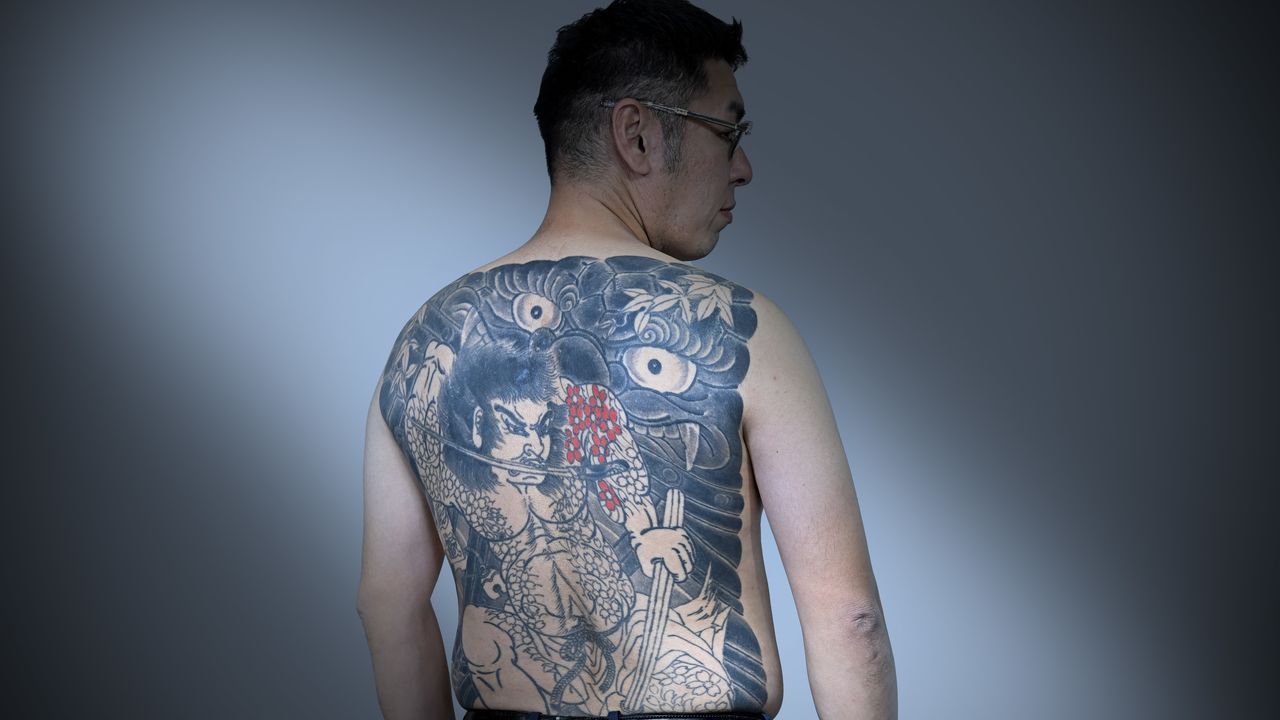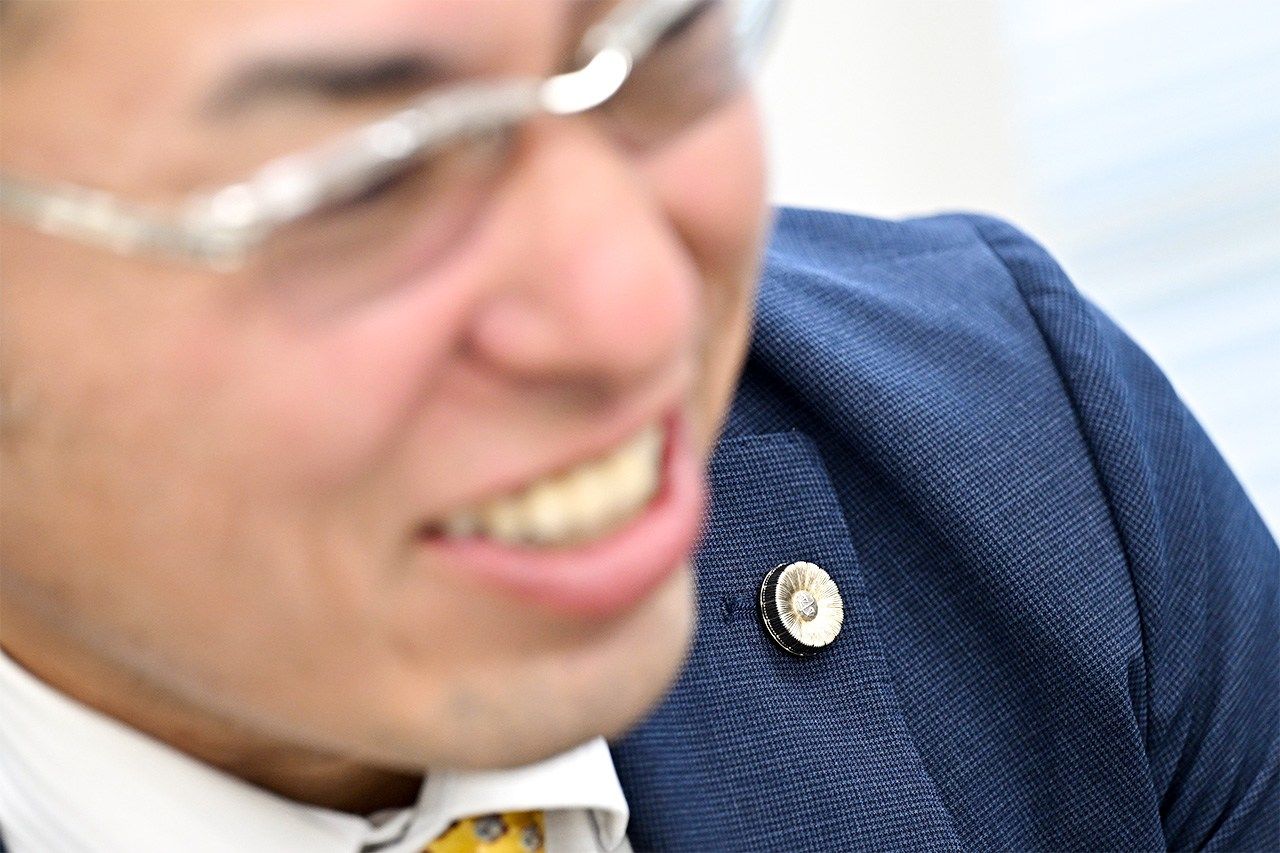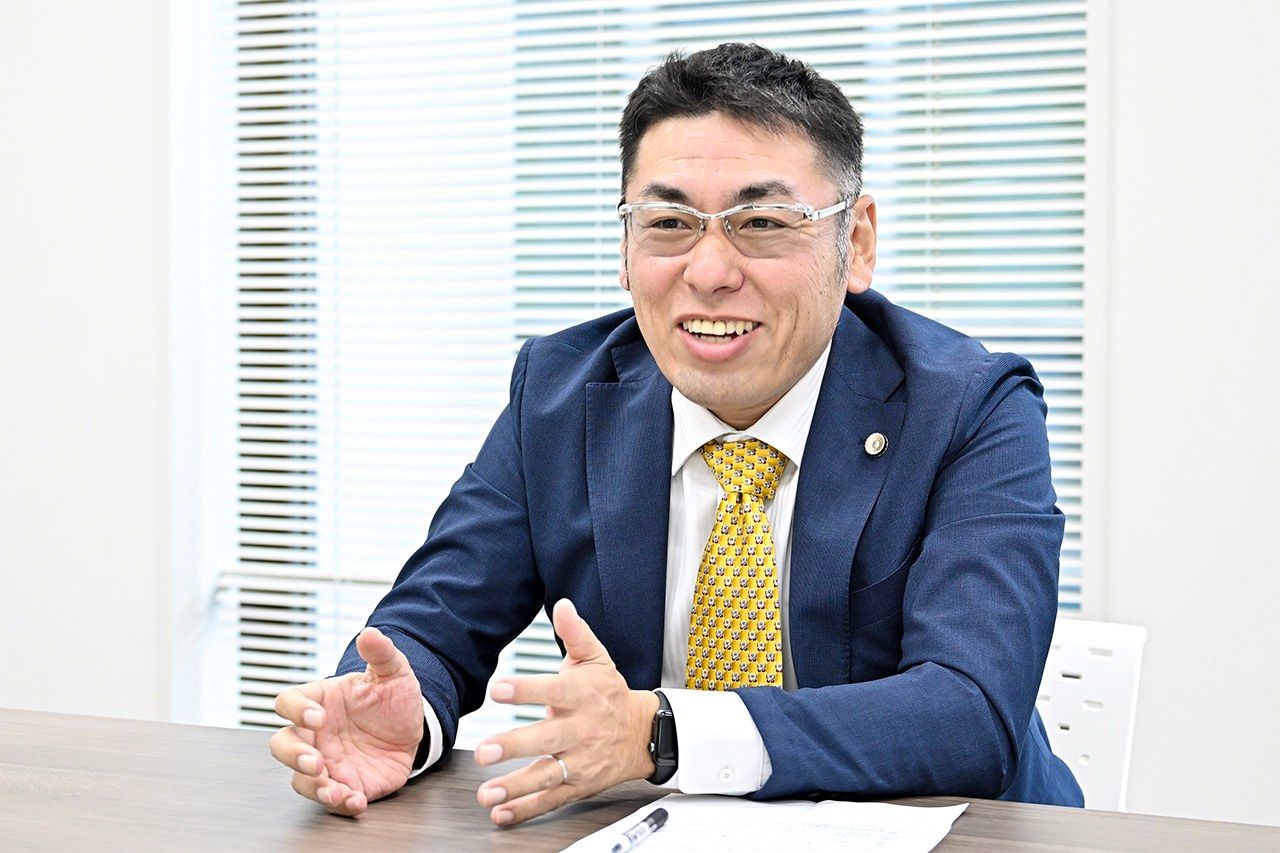
From Outlaw Status to the Legal Profession
Yakuza Turned Lawyer Morohashi Yoshitomo Opens Up About His Dark Past
People Society Work- English
- 日本語
- 简体字
- 繁體字
- Français
- Español
- العربية
- Русский
The Fall of an Honors Student
Morohashi Yoshitomo was born in Iwaki, Fukushima Prefecture, as the only child of a family in the noodle making business. His father died when he was in junior high school, but he did not have a troubled childhood. “I don’t mean to boast, but I was a good student. I was always top of my class. I loved director Itami Jūzō’s movie Marusa no onna [A Taxing Woman], so I decided to go to the University of Tokyo and become a tax investigator with the National Tax Agency.”
So, what was it that dragged down this young man, so dedicated to justice early on? It started off so simply. He enrolled in one of the prefecture’s top preparatory schools, Iwaki High School, but found living alone with his mother lonely. So, he started going out at night with friends. That started his life on a downward spiral into such disarray that he failed his university entrance exams and had to move to Tokyo to go to an exam-focused cram school.
There, he found methamphetamines. “In those days, marijuana and other drugs were popular with young people. The school was so famous that if I said the name, most people would recommend it, but even there some students were on drugs.” His friends offered, and he caved to the pressure. The method they used was called aburi—heating meth and inhaling the smoke.
He soon lost interest in studying and fell in with a bad crowd. He spent two years at the school and finally managed to get into Seikei University, but his life was already a mess. He spent all day in mah-jongg parlors and started hanging out with yakuza members. In what now seems an all too predictable outcome, he dropped out of university and joined a crime syndicate. His superior, the man he called aniki (big brother or boss), was gentle mannered and stylish. “He was the same age as my late father. Looking back, I think I might have seen him as a paternal replacement. It was fun being with him, so I followed him everywhere.”
Arrest, Institutionalization, and Expulsion
His natural talents shined, and soon he was his mentor’s right-hand man and a pillar of his gang. The group’s money came from selling meth and loan sharking. “We’d lend for ten days at thirty percent interest, which is a crazy rate, but we still had lots of borrowers. And they’d rack up multiple debts. . . . Then, at the same time, we’d be selling meth to the punks working the loan shark business. It was crazy stuff we were doing.”
But his own meth addiction was getting worse and worse. He would shoot up the drug shipments they took in to test the effectiveness, what they called a “taste,” and the repeated tastes worsened his addiction.
He would be terrified by days of visual and auditory hallucinations. Then, one day in 2005, they drove him to begin trying to control traffic at the scramble crossing in front of Shibuya station, and the police took him into custody. He was forcibly committed to a mental hospital, and afterward arrested for violating the Stimulants Control Act. He was sentenced to 18 months in prison, suspended for three years.
The incident was enough to get him expelled from his gang. The organized crime world has its own form of tatemae and honne, the public face and the reality behind it. On the surface, the sale and use of drugs by members is forbidden. The reason he was kicked out was openly breaking this rule. His tattoos, a symbol of his commitment to living in that world, were not even finished. “I was still dealing with the aftereffects of addiction. I wasn’t a yakuza any more, and thinking about what I could do next filled me with despair.”
But this new fall brought about another change of fate. While he was in custody, his mother kept him in mind, and sent him a book. It was Dakara, anata mo ikinuite (trans. by John Brennan as So Can You) by a unique lawyer, Ōhira Mitsuyo.
In school, Ōhira suffered terrible bullying and fell into delinquency. She married the boss of a crime family in her teens, but then set her mind on passing the bar exam. “I was shocked that this kind of life was possible,” recalls Morohashi. “After that, I dedicated myself to following the path she had broken.”
Seven Years of Hitting the Books
He returned to his home in Iwaki and began studying. “I had spent so long with the yakuza that I couldn’t be satisfied sitting at a desk at first, much less actually studying.” So says the former honors student, who had never struggled with studying in school. “In my case, though, there was also impact from the drug addiction, and if I managed to focus, I would end up overdoing it. So, I decided to set some controls for myself, and study for thirty minutes, then take a thirty minute walk. In this way I managed to keep chipping away at it.”
He studied like a demon and then, like Ōhira before him, started with certification as a real estate agent. He followed up by passing the difficult exam to become a judicial scrivener, and then he moved to Osaka and enrolled in Kansai University’s School of Law. Finally, in 2013, he passed the bar exam. This is the peak of Japan’s legal qualifications and requires an estimated 5,000 to 8,000 hours of study to pass. It took him seven years from his drug arrest sentencing to passing the exam.
During that time, he had a terrible struggle with the lingering aftereffects of his meth addiction. “There were times when I was absolutely frantic to shoot up. And since breaking my brain once, I’ve had waves of poor condition, when it just won’t work the way it used to. Even now I still have terrible headaches and I can’t get by without tranquilizers.”

The lapel badge given to lawyers in Japan is a sign of rare dedication. (© Ikazaki Shinobu)
With his legal studies over, he worked at law offices in Osaka and Tokyo dealing primarily with criminal cases. He made that choice so he could use his own unusual background. Those around him, including the lawyer he considered his greatest benefactor, Ōhira, advised him not to reveal his past because it could lead to misunderstanding and prejudice.
Even Children Excluded in Harsh Yakuza World
In 2022, though, after eight years as a lawyer, he appeared on a YouTube show with the host Maruyama Gonzales, a specialist in underground societies, and revealed his history as a yakuza. It seems he requested to go on himself. Why?
“Some of my criminal clients seem to think there’s no point in opening up and telling the truth, since neither their lawyer nor the judge would understand. There were lots of times when I felt like maybe revealing my own past would get them to speak to me.”
He was able to reintegrate into society after learning about Ōhira, and he feels it his duty to encourage others’ rehabilitation the same way.
Some of his clients are also connected to the yakuza. He has worked to convince active members to leave the gangs and start down a new path. The truth is that most of the members say they want to quit. That’s because the life is a difficult one, with no benefit at all.
However, there are many difficulties that accompany a return to normal society for former yakuza. According to so-called “yakuza exclusion ordinances,” even when you quit a gang you are considered a member of an “antisocial force” for at least five years, which means you cannot get a bank account. And without a bank account, it can be hard to rent a room or look for a job. There are many ex-members who attempt rehabilitation but struggle to get their lives back and end up right back in the organization. “I don’t know what the reason is, but after quitting there are people who can’t get a bank account even after five years have passed. In my case, I somehow managed to get an account, but when I tried to buy a house, they stopped my loan application during review.”
In some cases, children have been excluded from community activities due to parents being members. “Children can’t choose their dad and mom. It’s so sad that kids have to suffer because of their parents.”
Morohashi has been targeted by abuse on social media, with comments like “Who cares what a yakuza has to say!” but he does not mind. He is more concerned about preventing new harms caused by the trend toward “excessive exclusion.”
“At heart, society should be more interested in rehabilitation than exclusion. It shouldn’t be excluding those people who want to be rehabilitated.”
Recently, Morohashi has been receiving increasing requests for representation from readers of his book. “Some of them were formerly represented by major legal firms, but they come to me saying they want a more trustworthy lawyer,” he says, with a shy smile.
(Originally published in Japanese. Interview and text by Mori Kazuo and Power News. Banner photo © Ikazaki Shinobu.)
